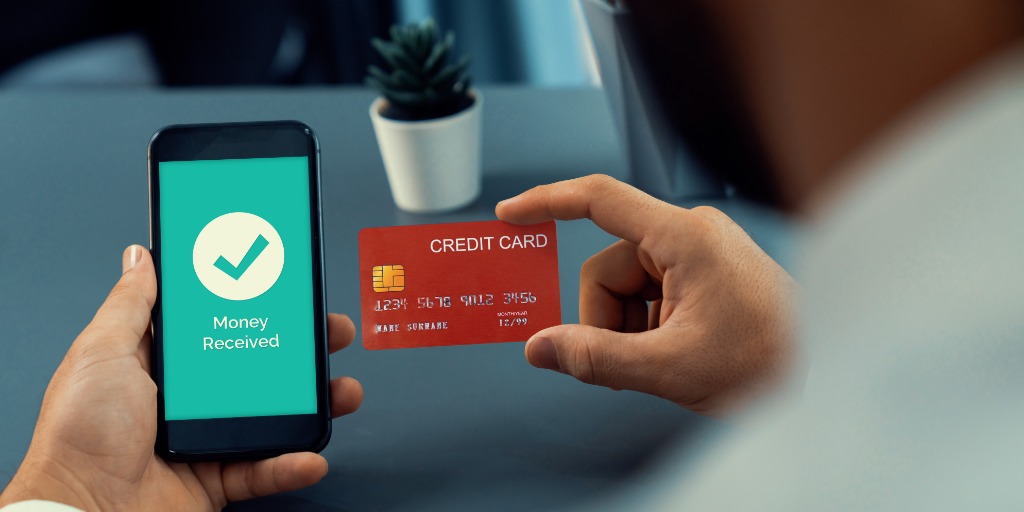
Does your debit card have a daily spending limit? Most likely, yes.
A debit card spending maximum is set by the individual bank or credit union that issues the debit card. Some debit cards have spending capped at $1,000, $2,000, or $3,000 daily. Some may be even lower, limiting you to a couple hundred, and others can even be quite a bit higher depending on the account with the bank or credit union.
Try to spend more than the maximum allowed, and your debit card will be declined even if you have enough money in your checking account. Not having your transaction got through can be embarrassing. So what do you do? Start with finding out your limits are, then follow with some easy steps you can take to deal with debit card spending limits needed.
Why worry about debit card spending limits?
It’s not every day you need to spend more than a $1,000 on a debit card. But it can happen. Especially if you don’t have or wish to use a credit card for major purchases, you may find yourself needing to pay a big car repair bill, book an emergency flight, or make another large purchase that will cost more than your associated debit card spending limit may allow.
Daily limits are placed on your card for security reasons. This way your bank account won’t be drained of funds if theft or fraud occurs.
Ask your bank or credit union what your debit card limits are
Before you can deal with a debit card spending limit, you need to know what it is. A few banks publish this information on their websites in the small details or print the information on the paperwork that comes with your debit card.
If not, or you can’t find it, you’ll need to call up your bank or credit union and ask to get the most up-to-date and accurate info on your limit. Be sure to determine both your ATM cash withdrawal daily limit and your debit card spending limit individually. They’re not the same and usually have different limits.
Typically, your cash withdrawal limit will be lower than your spending limit. Many banks set ATM withdrawal limits at a few hundred or more in a 24 hour period. Sometimes it can be well over a thousand. Your daily spending limit will usually be higher.
Also, ask your bank if ATM transactions count towards your daily spending or purchase limit. If yes, and hypothetically you have a $1,000 total daily spending limit, when you withdraw $200 from an ATM you could not then make a $900 purchase on your card in the same day since that would put you over the cap.
What’s your daily spending limit?
Your spending limit through your bank can vary by the type of account you have and your personal financial history. Select nationwide banks like U.S. Bank and Wells Fargo Bank may speak to customers about their daily purchase limits and may work to make adjustments as needed depending on the customer relationship.
But some large banks provide some level of clarity on their set limits. These include:
| Bank | Daily ATM withdrawal limit | Debit daily spending limit |
|---|---|---|
| Ally Bank | $500 – $1,000 | $2,000 – $5,000 |
| Bank of America | $700 – $1,000 | $1,000 – $5,000 |
| BMO | $1,000 | $5,000 |
| Capital One | $600 – $1,000 | $5,000 |
| Chase | $500 – $3,000 | $5,000 – $7,500 |
| Charles Schwab | $1,000 | $15,000 |
| Citibank | $1,500 – $5,000 | $5,000 – $25,000 |
| Citizens Bank | $500 – $1,000 | $5,000 – $10,000 |
| Discover® Bank | $510 | $2,500 – $5,000 |
| HSBC | $500 – $1,000 | $500 – $5,000 |
| Huntington Bank | $520 | $520 |
| KeyBank | $500 | $7,500 |
| M&T Bank | $1,000 | $7,500 business; personal see agreement |
| Morgan Stanley | $1,500 – $5,000 | Not specified in terms |
| Regions Bank | $808 | $5,000 |
| Santander | $1,000 – $2,500 | $5,000 – $11,500 |
| Truist Bank | $500 – $2,500 | $3,000 |
| TD Bank | $1,250 – $1,500 | $2,000 – $10,000 |
| USAA | $600 | $3,000 |
These typical limit amounts range depending on your account type (with more premium accounts having higher limits) and time since account opening. Business checking accounts also may carry different limits than personal ones.
How to increase your debit card limits
How do you increase your daily spending limit for your debit card? Most banks will increase debit card limits if you ask. This increase can be either permanent or temporary, with some raises only lasting for a 24 hour period, so make sure you find out ahead of time.
Also, be sure to find out when the increase will take effect. Sometimes it’s instantaneous and other times it may take 24 or 48 hours, so if you go to make a big purchase right after hanging up with the bank, the transaction may still not go through as planned.
Credit card vs. debit card: Is credit a better idea?

Alternatively, there are times when it is better to use a credit card over a debit card, making the limit less of an issue. If you have good credit or you would like to build up your credit history for use later on, applying for a credit card can be a good idea. If you use your credit card responsibly, spending can create a positive credit history, making you a more likely candidate for approval on better cards in the future. Those better cards may come with a number of valuable rewards, benefits for travel and protections on purchases.
Here’s when it’s a better idea to reach for a credit card than your debit card:
- If you are short on cash but will be getting more soon.
- If you need to make a purchase that can be broken up into monthly installments.
- If you are paying a lot of interest on a previous debt and wish to consolidate under a lower interest rate.
Of course, the one caveat to this is that we stress (again) you must use your credit card responsibly. This means paying at least your monthly minimum and not letting the interest accrue unnecessarily. That’ll save you from potentially having to get out of debt down the line. If you can handle that, then a credit card is an excellent idea for you for several reasons. Here are some:
Credit cards that help you build your credit
As I mentioned above, responsible credit card spending will actually build your credit and help you raise your credit score. A secured credit card like the Capital One Platinum Secured Credit Card allows people with bad credit or no credit at all to start building (or rebuilding) their credit with responsible use. For an unsecured version, there’s the Capital One Platinum Credit Card.
Debit cards do not offer this type of advantage to build your credit with on-time payments and responsible use at all, no matter how long you’ve been a cardholder.
» MORE: How to build credit for the first time
You can earn rewards from credit card programs
Most credit cards today offer some sort of rewards program. These programs can often be highly lucrative, giving you real cash back, gift cards, and statement credits for the spending you are doing anyway. Even if you don’t have great credit, you can earn rewards with certain credit cards for people with poor credit.
Credit cards offer other benefits too
In addition to rewards points, credit cards offer valuable benefits including airport services, travel insurance and perks, and shopping advantages like extended warranty and purchase protection. In these instances, the annual fee becomes less of a pain. Some cards will even give you lucrative welcome bonus offers that are earned with spending following account opening.
Credit cards are an emergency line of credit
While you may hope you’ll never need it, a credit card is a good emergency fund in case the need ever does arise. Whether it’s a medical emergency, an unexpected repair needed on your house, or a car part replacement that ends up costing you thousands of dollars you just don’t have handy, credit cards over debit cards offer you the flexibility to stay covered and make payment in these unpredictable times.
Credit cards offer debt consolidation options
Another perk to credit cards is the introductory 0% APR offers. These can last for limited number of months on purchases and/or balance transfers. If you have debt or need to make a large purchase (or both), taking advantage of this can save you hundreds or even thousands of dollars by canceling the interest payments for that period of intro time.
Summary
Debit cards can be great at times for daily purchases but there are daily spending limits to be aware of. You may also find that credit cards (or even cash) vs debit can be overall better choice depending on the purchase.
With these details in mind, be aware of your daily spending as well as your ATM withdrawal limit for your debit card and if you use a credit card instead make sure you practice responsible usage.
